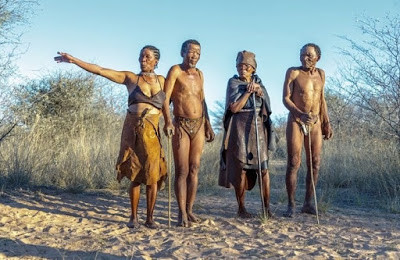Our prehistoric ancestors are often portrayed as spear-wielding savages, but the earliest human societies are likely to have been founded on enlightened egalitarian principles, according to scientists.
A study has shown that in contemporary hunter-gatherer tribes, men and women tend to have equal influence on where their group lives and who they live with.
The findings challenge the idea that sexual equality is a recent invention, suggesting that it has been the norm for humans for most of our evolutionary history.
Mark Dyble, an anthropologist who led the study at University College London, said:
“There is still this wider perception that hunter-gatherers are more macho or male-dominated. We’d argue it was only with the emergence of agriculture, when people could start to accumulate resources, that inequality emerged.”
Dyble says the latest findings suggest that equality between the sexes may have been a survival advantage and played an important role in shaping human society and evolution.
“Sexual equality is one of a important suite of changes to social organisation, including things like pair-bonding, our big, social brains, and language, that distinguishes humans,” he said. “It’s an important one that hasn’t really been highlighted before.”
Dyble said that egalitarianism may even have been one of the important factors that distinguished our ancestors from our primate cousins.
“Chimpanzees live in quite aggressive, male-dominated societies with clear hierarchies,” he said.
“As a result, they just don’t see enough adults in their lifetime for technologies to be sustained.”
The findings appear to be supported by qualitative observations of the hunter-gatherer groups in the study.
***
The scientists collected genealogical data from two hunter-gatherer populations, one in the Congo and one in the Philippines, including kinship relations, movement between camps and residence patterns, through hundreds of interviews.
In both cases, people tend to live in groups of around 20, moving roughly every 10 days and subsisting on hunted game, fish and gathered fruit, vegetables and honey.
In the Philippines population, women are involved in hunting and honey collecting and while there is still a division of labour, overall men and women contribute a similar number of calories to the camp.
In both groups, monogamy is the norm and men are active in childcare.
***
Source: ScienceMag




I will find this very difficult to agree!